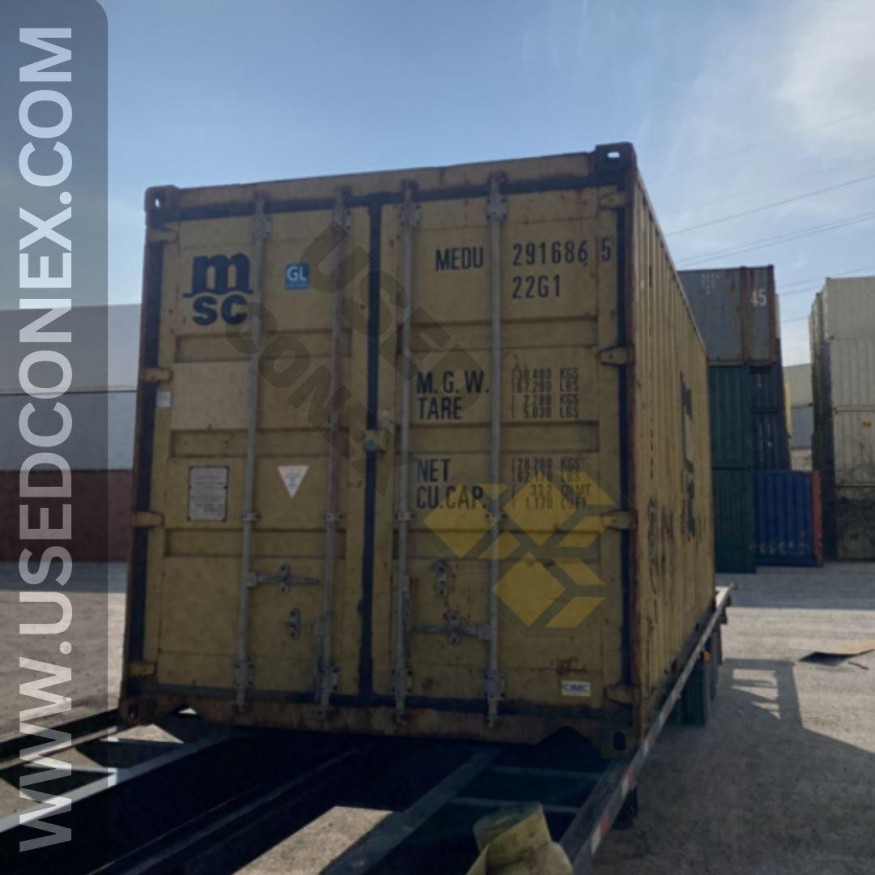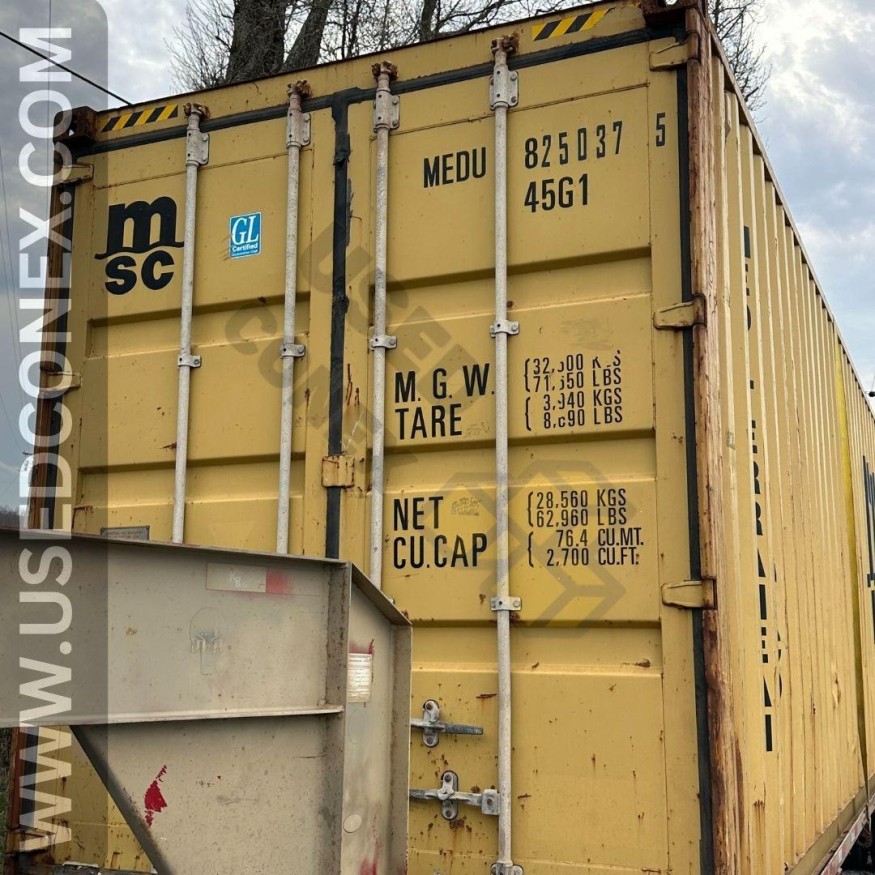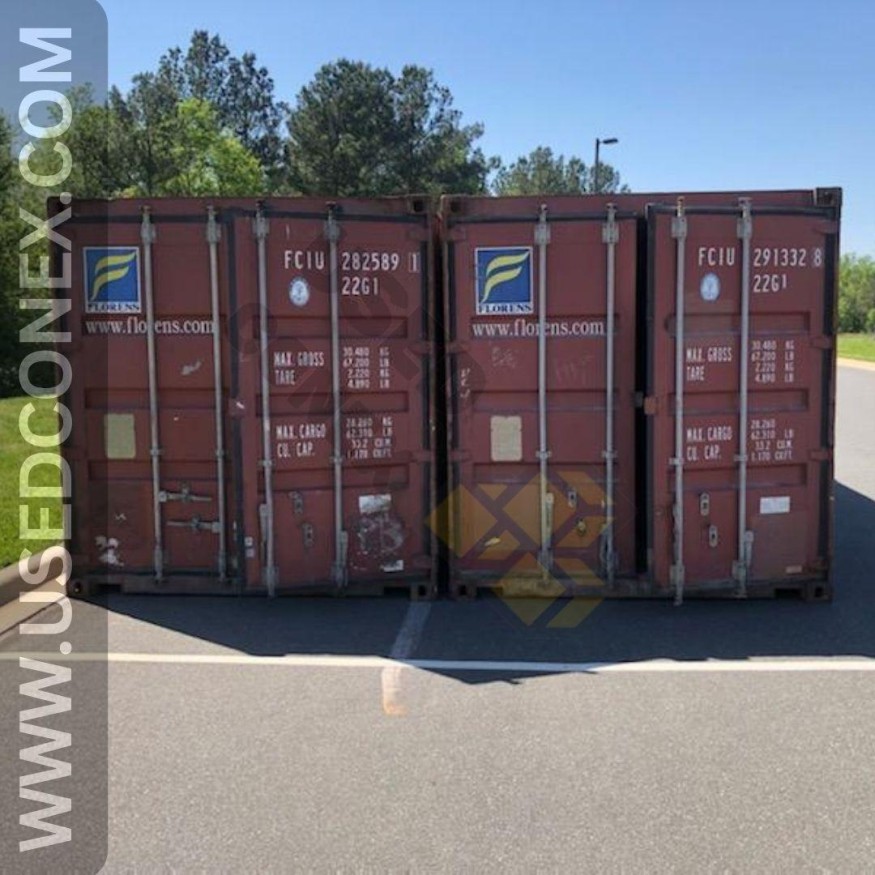
How to Buy Shipping Containers in Baltimore, MD
Shipping containers have evolved from humble cargo carriers to versatile and innovative building blocks for various industries. Their sturdiness, portability, and affordability make them an excellent option for various purposes, such as storage, construction, and transportation.
If you're looking to buy shipping containers in Baltimore, MD you've come to the right place. In this comprehensive guide we will walk you through everything you need to know about purchasing shipping containers in the Charm City.
Understanding Shipping Containers
Before delving into the specifics of buying shipping containers, it's essential to understand their different types and configurations. Shipping containers come in various sizes, with the most common being the 20-foot and 40-foot options. High cube containers offer additional height, while refrigerated containers are ideal for storing perishable goods.
It's also crucial to consider the condition of the containers. New containers are a preferred choice for long-term use and often provide a more polished appearance. On the other hand, used containers are more budget-friendly and suit short-term or temporary projects.
Identify Your Purpose
Before you start your search for shipping containers, clearly define the purpose for which you need them. Are you planning to use them for storage, construction, or transportation? Determining your purpose will help you choose the right size, condition, and features required for your specific project.
If you're using the container for storage, assess how much space you'll need and whether you'll require any additional features like shelving or ventilation. For construction purposes, focus on the structural integrity and overall condition of the container. Transportation projects demand containers that meet all necessary safety and regulatory standards.
Research Local Regulations
When buying shipping containers in Baltimore, MD, it's crucial to understand the local regulations and zoning laws governing their use. The regulations may vary based on the intended purpose of the container, so ensure you are compliant before making a purchase.
Contact the local authorities or check the city's official website to familiarize yourself with any specific rules on container placement, construction, or usage. Adhering to these regulations will help you avoid potential legal issues and ensure a smooth and hassle-free experience.
Choose a Reputable Seller
Selecting a reliable seller is paramount when buying shipping containers. With many options available, it's essential to conduct thorough research and choose a reputable and trustworthy supplier. Here are some factors to consider when evaluating potential sellers:
a. Experience and Reputation: Look for sellers with a long-standing history of providing quality containers and excellent customer service. Read reviews and testimonials from previous customers to gauge their reputation.
b. Container Quality: Request detailed information about the containers in their inventory. Ask about the age, condition, and any modifications made to the containers. Insist on inspecting the container in person or ask for detailed photographs.
c. Pricing: Compare prices from multiple sellers to ensure you're getting a fair deal. Be wary of suspiciously low prices, as they may indicate subpar quality.
d. Delivery Options: Inquire about delivery options and associated costs. Consider working with a seller who can deliver the container directly to your desired location.
e. Customer Support: A responsive and helpful customer support team is essential, especially if you have questions or concerns during the buying process.

Inspect the Containers
If possible, inspect the shipping containers before making a final decision. In-person inspection allows you to assess the container's condition, ensuring it meets your requirements and expectations.
Pay close attention to the following aspects:
a. Structural Integrity: Check for any signs of rust, dents, or holes that could compromise the container's structural integrity. Minor surface rust may be acceptable, but extensive corrosion is a red flag.
b. Doors and Locking Mechanisms: Test the doors to ensure they open and close smoothly. Check the locking mechanisms to guarantee they are in proper working order.
c. Interior Condition: Inspect the interior for any signs of damage, pests, or mold. A clean and dry interior is crucial, especially for storage and construction purposes.
d. Flooring: Check the condition of the container's flooring. Solid and intact flooring is essential to prevent water leakage and support heavy loads.
Consider Modifications and Customizations
Shipping containers can be modified and customized to suit your specific needs. If you require additional features like windows, doors, insulation, or ventilation, discuss these options with the seller. Many suppliers offer container modification services, saving you time and effort.
Before proceeding with any modifications, ensure they comply with local regulations and will not compromise the container's structural integrity.
Understand the Purchase Agreement
Before finalizing the deal, carefully review the purchase agreement to avoid any surprises. Pay attention to the following details:
a. Purchase Price: Ensure the agreed-upon price is clearly stated, including any additional costs for modifications, delivery, or taxes.
b. Payment Terms: Understand the payment terms and schedule. Be cautious of sellers demanding full payment upfront before delivering the container.
c. Delivery Timeline: Confirm the expected delivery timeline and any penalties for delayed delivery.
d. Warranty: Inquire about any warranties or guarantees offered for the container.
e. Return Policy: Clarify the seller's return policy in case the container does not meet your expectations or is damaged during delivery.

Arrange Transportation and Delivery
If you're buying shipping containers for construction or storage on your property, you'll need to arrange transportation and delivery. Some sellers provide delivery services, while others may recommend third-party transportation companies.
Consider the following when arranging transportation:
a. Accessibility: Ensure the delivery location is accessible for the transportation vehicle and that there are no obstacles hindering the unloading process.
b. Permits: Check if you need any permits for container placement on your property or construction site.
c. Safety: Prioritize safety during delivery to prevent accidents or damage to the container and your property.
Prepare the Delivery Site
Before the shipping container arrives, prepare the delivery site to ensure a smooth and efficient unloading process. Clear any obstacles and level the ground to provide a stable foundation for the container. If necessary, lay down gravel or concrete pads to prevent moisture and corrosion from affecting the container's base.
Utilize the Shipping Container
Congratulations on successfully acquiring your shipping container! Now it's time to put it to good use based on your original purpose. If you're using it for storage, consider organizing the space efficiently with shelving and dividers. For construction projects, incorporate it seamlessly into your design. For transportation, ensure all safety measures are followed during loading and unloading.
Conclusion: Purchasing shipping containers in Baltimore, MD, can be a rewarding endeavor, provided you take the time to understand your needs, research reputable sellers, and conduct thorough inspections. Whether you need additional storage space, an innovative building solution, or a reliable transportation method, shipping containers offer a versatile and cost-effective option for your projects.
Remember always to prioritize safety, adhere to local regulations, and seek professional advice if necessary. With careful planning and attention to detail, you can make the most of your shipping container investment and unlock a world of possibilities in Baltimore, MD. Happy container hunting!












